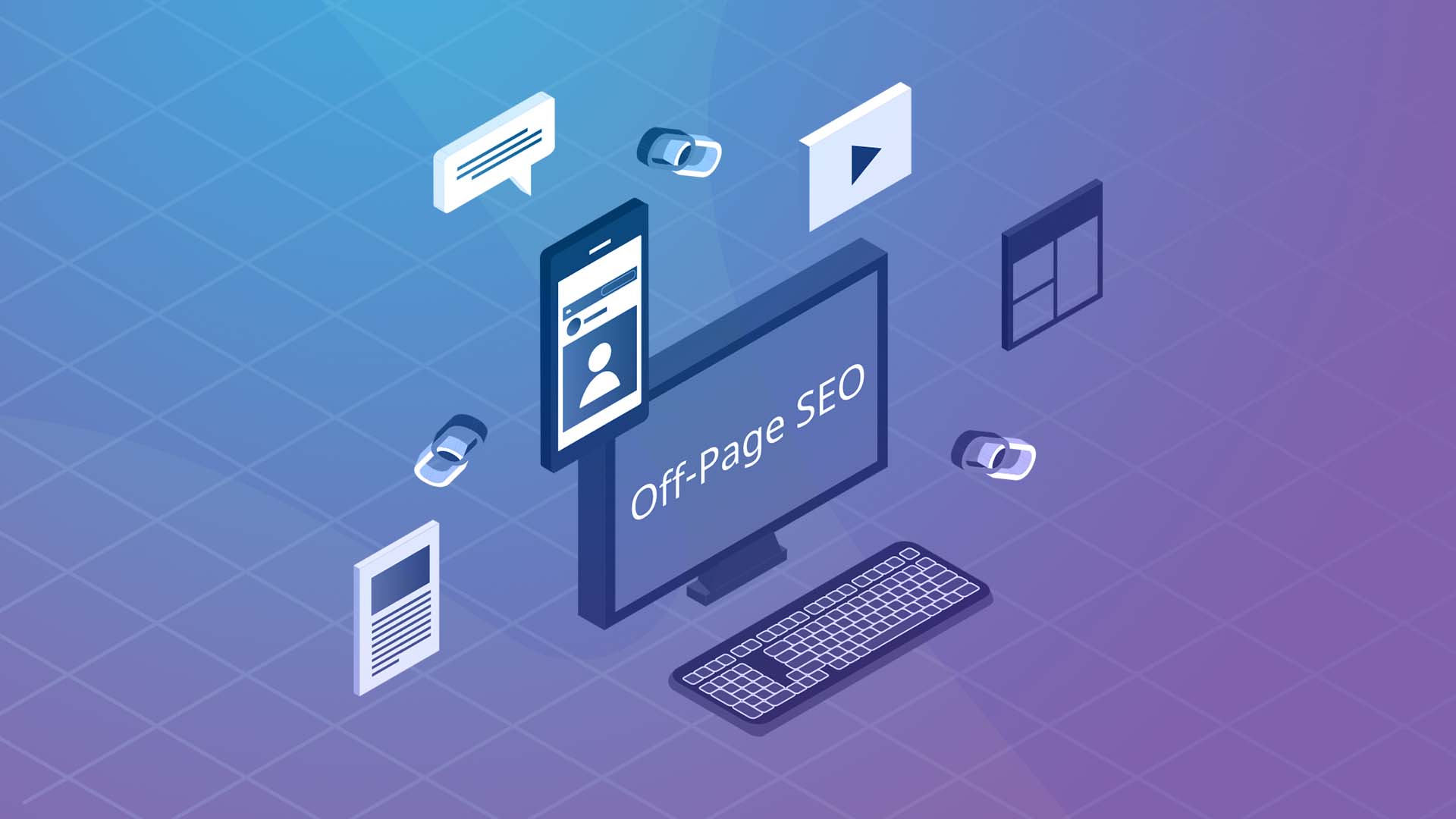Why Off-page SEO is Important + Our Off-page SEO Tips for 2021
With so many still wondering why off-page SEO is important to online businesses, we thought we’d throw in the much–sought-after explanations! We’ve also compiled a quick list of off-page SEO tips & tricks to help your website stay at the top of the game in 2021.

More and more businesses need an eCommerce website in 2021, particularly with COVID drastically changing consumer behavior and the shopping landscape all over the world. And while there are many reasons to launch a sales platform as soon as possible, there are some steps you can’t afford to skip. Those who quickly set up a website and called it a day things have seen that making yourself visible online it’s exactly easy. Usually, freshly-launched eCommerce businesses find they’ve been swallowed up in an over-competitive web scrape, and SEO is their only way out. You’ll find plenty of excellent blogs on how to optimize your website out there. Still, it’s always better to grasp the basics before jumping into actual practice.
SEO: On-page vs. Off-page vs. Technical
SEO stands for Search Engine Optimization.
Essentially, it’s a collection of skills, practices, and techniques that help search engines discover and index your website. As a result, SEO can help websites rank higher in web search queries related to their target audiences and drawing in organic inbound traffic, which is why off-page SEO is so important to new online businesses.
Now, we’ll introduce you to a standard classification: off-page vs. on-page SEO.
- On-page SEO focuses on your internal website structure, its functionality, and the quality of its content. For more about On-page SEO, check out our previous blog.
- In contrast, off-page SEO focuses on how authoritative and popular your website is when measured against other web platforms.
There’s also “technical SEO, which refers to things that directly impact indexing and crawling. According to Semrush, some standard technical SEO practices include site speed optimization, structured data, canonicalization, hreflang, and more.
Off Page-SEO – The Gist
Thus, off-page SEO attempts to boost your platform’s popularity, which is sometimes quantified in terms of something online marketing experts call “domain authority.”
The term “Domain” merely refers to the name of a website. As for “authority,” this is what SEO specialists have to say: a website’s authority refers to its trustworthiness, credibility, and popularity. These are all aspects algorithmically (automatically) assessed by search engines like Google. A web platform’s authority allegedly increases when other authoritative websites create links that lead to yours. We call them: inbound links, external links, or simply backlinks.
At the end of the day, off-page SEO is an umbrella term for tactics like external link-building, which ultimately aims to boost your website’s authority. An early warning: link building is but one of the many many off-page SEO tactics that help your website rank higher.
Additionally, you’ll have to pay (at least) just as much attention to on-page SEO! Although some people believe that off-site SEO may matter more to search rankings than on-site optimizations, we strongly advise you to equally attend to both. Need some proof? Check out this fantastic Backlinko blog that lists no less than 208 factors used by Google to rank websites in the SERPs. Remember that all of these aspects contribute to a website’s domain authority.
Another thing to keep in mind is that domain authority is a term coined by digital marketing specialists to help them quickly assess how good a website performs in terms of SEO. Google itself uses no such unifying metric; it simply relies on its complex algorithms. You can read more about domain authority
Why Off-page SEO is Important
Off-page SEO is a powerful tactic because it lets search engines know that your website is relevant to other web users, making it seem more valuable. When you’re trying to sell products online, authoritativeness, trustworthiness, and popularity are things that you can’t afford to miss out on. But not all eCommerce businesses are aware of off-page SEO.
Although more and more companies are catching on to the importance of having a digital presence in today’s age and economy. And so, many of them hire web development agencies to set up their website but then receive no guidance on how to properly maintain it. In short, many of these websites (and not only the new ones) are ill-equipped to perform well on search engines. Why? Because they lack SEO, periodic maintenance, content updates, and all the other aspects that contribute to building a better website.
What’s more, while some digital marketing agencies may pay close attention to on-page SEO, it’s not rare that off-page SEO services are left out of the equation. This is unfortunate because new websites that wish to rank higher in relevant SERPs need off-page SEO services as much as they need on-page tactics (like qualitative content, mobile UX, and on-page keyword strategies). However, to understand why off-page SEO is essential, you only need to ask yourself: is it worth setting up a website if it doesn’t bring you traffic, profit, and a solid ROI? The answer is, quite obviously, no. And for a platform to perform well on the web, you’ll need everything from quality, user-tailored content to domain credibility, which you can build up using some of our off-page SEO tips right below.

Off-page SEO Tips for 2021
The focus of any off-page SEO tactic is link building, the process of gaining, tracking, and optimizing your website’s backlinks. It’s been proven that the quality and number of backlinks pointing to your domain may improve the perceived value of your website. So it’s good to know right off the bat that quality trumps quantity in this instance. Why are backlinks so important? Well, the logic’s relatively simple. Suppose other web platforms – even competitors – link to your website (for instance, through in-blog citations) at the expense of losing traffic on their website. In that case, it means your content is more likely to deliver real value – or at least that’s what search engines perceive. So now, let’s finally move on to our off-page SEO tips and tricks for 2021.
1. Check Your Website’s Existing Backlinks
First, start with analyzing existing backlinks. Semrush has a free backlinks analytics tool that you can read more about. You can also perform a good amount of backlink research with the free version of the Moz software, which, by the way, coined the very term of “domain authority.” You may read more about their link explorer.
2. Remove Spammy Backlinks
Remember what we said about backlinks? Qualitative ones can boost your ranking, while bad, spammy, or toxic links will achieve the exact opposite. Links pointing to your website need to be relevant and come from authoritative websites indexed on Google.
The type of backlinks you’ll never want connecting to your domain are:
- From link directories & farms;
- From penalized domains;
- From ‘bad neighborhood’ domains (e.g., online gambling);
- Links from entirely unrelated websites.
To remove spammy backlinks from your website, you’ll once again need help from one of the popular SEO tool options out there, like SEMRush, Ahrefs, Moz, or Monitor Backlinks. Next, we suggest you submit a Disavow File to Google.
3. Only Resort to Ethnical Link-building Strategies
Don’t be tempted by automated link building. And you should not purchase any backlinks. Such tactics are deemed illicit and will hurt your website’s ranking instead of boosting it. There are, however, plenty of ethical strategies that genuinely work:
- The skyscraper technique;
- Get in touch with people in your industry and share your content (as with industry forums);
- Focus on creating niched, high-quality content that people can learn from and genuinely wish to share around (via social media networks, for instance);
- Create shareable infographics (which are the type of content that people frequently repost).
4. Leverage the power of Social Media Marketing
One great way to boost your website’s popularity is to leverage the power of Social Media Marketing (SMM), including Influencer Marketing. Of course, you wouldn’t think that social media impacts search rankings. While it has no evident and direct impact on the SERPs, SMM done right can strongly boost your brand visibility and website traffic.
Platforms like Facebook, Linked In, Twitter, Pinterest, and YouTube, may be used to improve off-page SEO in the following areas: outreach, link prospecting, as well as content ideation and promotion. Once you’re on social media, you must aim to connect to a relevant audience, then post content that delivers real value to that specific audience.
In particular, linking your website to your social media accounts can really do wonders in terms of traffic. Once your posts generate more engagement via social media shares, they will draw more people to your platform. Ultimately, more social engagement will boost the credibility of your brand not only to your direct customers but also to search engines.
5. Research Other Industry-Relevant Tactics
Naturally, there are many other off-page SEO-related tactics you can use to boost your search engine ranking. We’re talking about things like brand building, content marketing, PR, forums, events, guest posting, podcasts, and content syndication, which are tactics and disciplines in the grander scheme of digital marketing.
We suggest that you constantly research your specific market segment and keep an eye on what your competitors are doing in order to track the best authority-boosing methods.
Final Thoughts
As we have pointed out, building a solid online presence is imperative to future-oriented businesses. However, it takes a lot of time, effort, and even technical knowledge. We know that SEO is not a hobby, and definitely not the kind of thing that business owners can perform in their scarce free time.
Luckily, there are many solutions readily available for businesses in any industry. For reliable results, make sure to connect with digital marketing agencies that can provide quality SEO services. If that’s what you’re looking for, don’t hesitate to contact us!












